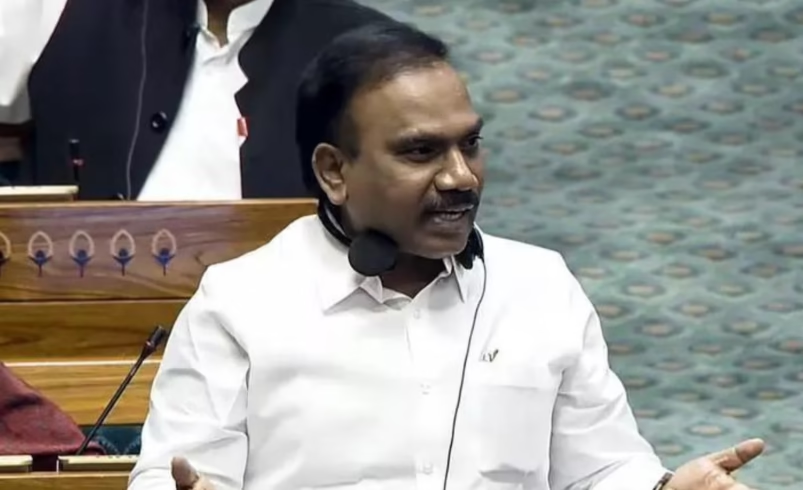A Raja Advocates for Removal of Hindi Signs at Nilgiris Station, Emphasizes Tamil Identity
- June 23, 2025
- 0

A Raja, a prominent leader from the Dravida Munnetra Kazhagam (DMK) party, has called upon Union Railway Minister Ashwini Vaishnaw to take action against the presence of Hindi banners at the Nilgiris railway station. This request is rooted in a broader concern about the preservation of Tamil Nadu’s linguistic heritage and adherence to the state’s long-standing two-language policy, which prioritizes Tamil and English. Raja argues that the increasing visibility of Hindi signage undermines the cultural and linguistic identity of Tamil Nadu, a state known for its rich history and pride in its native language.
The issue has sparked a significant debate about language representation in public spaces, particularly in regions with strong linguistic identities. Tamil Nadu has historically resisted the imposition of Hindi, advocating instead for policies that reflect its unique cultural and linguistic landscape. The two-language policy, which excludes Hindi, is seen as a crucial aspect of maintaining this identity.
Raja’s appeal to the Union Railway Minister highlights ongoing tensions between regional and national language policies in India. It underscores the importance of respecting regional languages and cultures within the broader framework of national governance. The DMK leader’s stance is not just about removing signs but also about ensuring that local languages are given due prominence in public domains.
This development is part of a larger discourse on linguistic diversity in India, where multiple languages coexist. The outcome of Raja’s request could have implications for how language policies are implemented across different states, potentially influencing future decisions on language use in public infrastructure. As this situation unfolds, it will be crucial to monitor how government authorities respond to such demands and what it means for regional language rights in India.